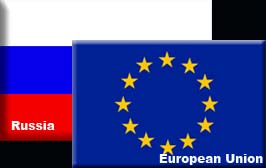Mandelson calls for end to "zero-sum thinking" in EU-Russia ties
 Moscow - EU Trade Commissioner Peter Mandelson called for an end to "zero-sum thinking" in EU-Russia relations on a visit to Moscow on Thursday.
Moscow - EU Trade Commissioner Peter Mandelson called for an end to "zero-sum thinking" in EU-Russia relations on a visit to Moscow on Thursday.
"Recent history," he said, "has produced zero-sum thinking on both sides, an inclination to see much of the relationship between Western Europe and Russia as power manoeuvring based on mutually exclusive interests."
Mandelson, who was in Moscow for talks Russia's WTO accession, expressed faith in the Russian government's conservative economic policy saying it had become "a banker for future generations," and urged it to stay on track for WTO membership.
The EU leader said he hoped to see Russia join the World Trade Organization by 2009.
But Mandelson's speech focused on Russia's need to find "new footing" in its relations with the European Union, saying this had become its greatest challenge since ties with the EU have become weighed down by "political differences" and "confusion," particularly in what concerns energy security.
Russia's President Dmitry Medvedev has renewed calls for the EU to drop barriers to Russian companies' investment, which he dubbed "economic selfishness." Europe is wary of Russian energy giant Gazprom ambition to move into downstream operations.
"In the energy sector: confusion about each others' motivations resulting in critical suspicion," Mandelson said, adding that only a new EU-Russia partnership agreement was needed to clarify this issue
The existing Partnership and Cooperation Agreement expired in November 2007, and several attempts to establish a new pact regulating EU-Russian energy, security and trade relations met with opposition from the EU's former Soviet members states in bilateral feuds with Moscow.
Mandelson reasserted that the individual relations of member countries with its eastern neighbour must be framed through the EU.
"We risk defeating ourselves and our broader goals, in Europe, if we only think in terms of national advantage."
But analysts in Moscow believe that Russia is in no rush to settle on a new agreement, preferring to deal with bilaterally with EU member states. (dpa)